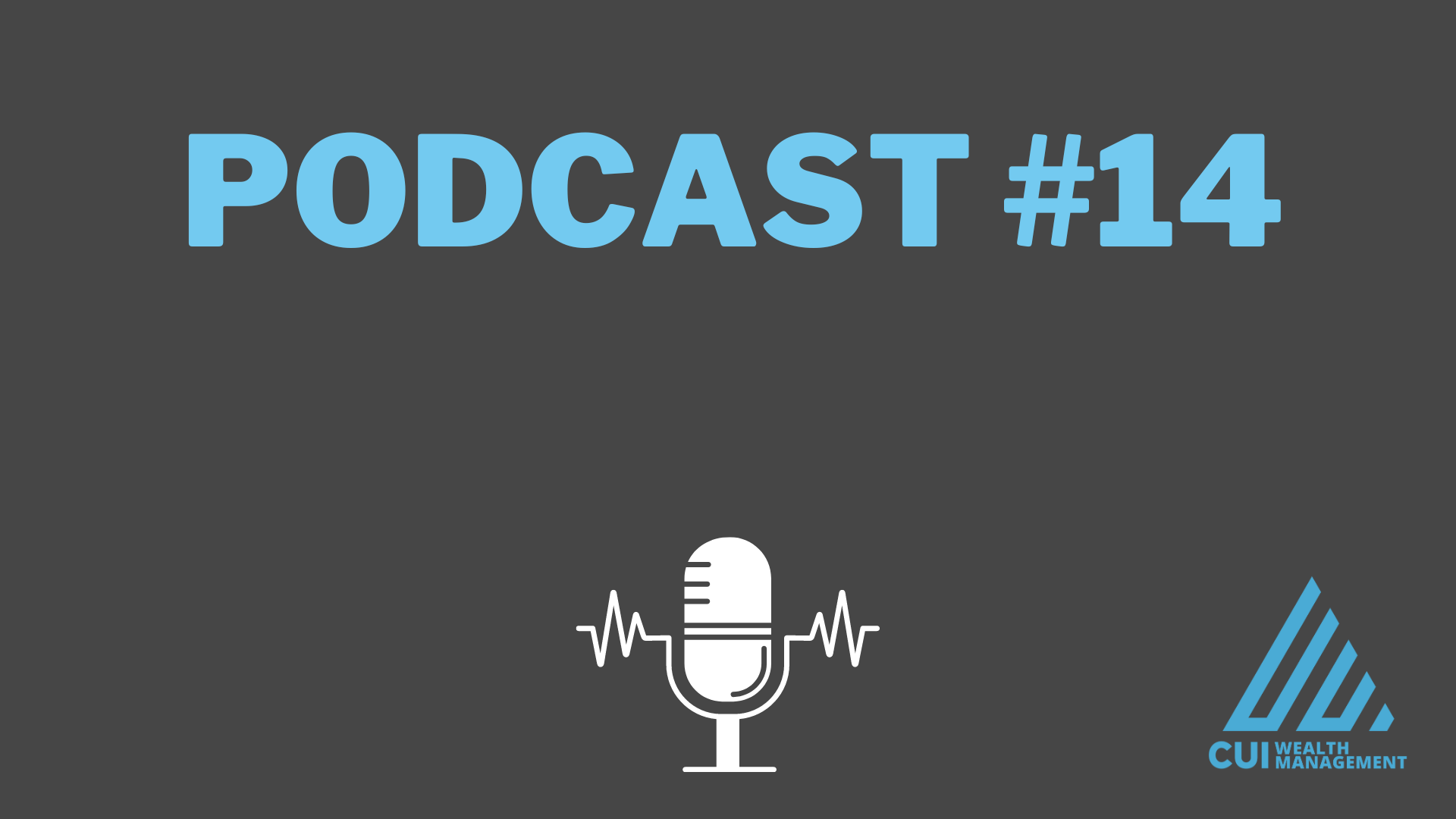
Episode #14
With Michael Sayre
Toxic Cognitive Biases
With Michael Sayre
Join us at the upcoming HR CE Event on February 29, 2024
Main Points
Discussion on toxic behavioral financial tendencies that can impact your 401(k) savings and investment strategies.
Definition of behavioral finance and how it combines cognitive psychology and economics to understand why individual investors don't always make the best decisions or don't always make rational decisions.
Explanation of the herd mentality or herding behavior, anchoring bias, and the importance of doing research before following a trend.
Transcript
Welcome to the In Your Business podcast, your go-to leadership, business, and finance podcast. I'm your host, Michael Sayre. This podcast is for you if you are a business owner, business leader, executive entrepreneur, or HR manager.
If you're making decisions for your company, this podcast is for you. CUI Wealth Management produces this podcast. CUI Wealth Management is a financial advising firm that provides 401(k) and wealth management services to executives and entrepreneurs. If you get value from this podcast, please like, share, subscribe, and let others know about it.
Today, I wanted to discuss toxic behavioral financial tendencies that can impact your 401(k) savings and investment strategies. We're going to be going over three things. We will be talking about what behavioral finance is, what common behavioral financial fallacies are, and what strategies to navigate behavioral finance are.
Before we do that, I want to discuss an event we are putting on this month. We are providing a SHRM continuing education webinar, which will take place on February 29 at 3 pm. Mountain Standard Time. We have invited a VP at Fidelity to share the results of their annual survey that they go over with 401(k) decision-makers. This will provide one hour of continuing education. If you are an HR professional, please look at that. I'll put a link below. If you think this would be valuable to an HR professional in your organization, please also share that link with them.
We want to ensure you get this information and can participate if interested.
Okay, first, let's talk about behavioral finance. And let's define it. People used to think everyone would make rational financial decisions. That's the traditional model when it comes to economics. But behavioral finance takes cognitive psychology and economics. It combines them to understand why individual investors don't always make the best decisions or don't always make rational decisions.
People don't always make rational financial decisions. They run on biases, emotions, and mental shortcuts that can lead to poor choices. Let's talk about some of the behavioral financial tendencies.
We're not going to talk about all of them. We recently wrote an article that went into greater depth on some of the first behavioral financial fallacies I want to discuss; let's give a little background before jumping into it.
Back in the day, you would have to send a letter if you wanted to get information about something. As technology kept evolving, we moved to the Telegraph. And then, in the 90s, if you wanted to know how your investments were doing, you'd get a newspaper and see the information from the day before. And as we progressed, now we have the internet. You can look at your account balances and investment strategies on a day-to-day and minute-to-minute basis. And we've even gone past that.
Sometimes, you don't even want to know about financial news. And you see it on the news. And you see it in your social media; it's almost difficult to avoid. And that can be stressful because sometimes, you know what's happening at the moment. And the market may be taking a hit that day. But everything can be blown out of proportion because you see everything in the moment; information is instantaneous.
So, what I want to talk about first is a cognitive bias called the herd mentality or herding behavior. It's just like a herd of cattle or a herd of sheep. It's the notion that people will often follow someone else's direction just because they don't want to miss out. So there's to think about this. The investors often follow the crowd, even if it's not rational. This can lead to groupthink and fear of missing out, leading to market bubbles and crashes.
One of the first things I want to put out there is if you are following a trend, be very careful in looking at what is the source of that and who is the person leading that and do your research because the fear of missing out can lead to extremely poor choices financially.
The next one I want to talk about is anchoring bias. This occurs when individuals rely too much on their first impression, the first information they encounter. And they use that for all the decisions they make moving forward; I see this a lot in relationships, where you see someone who is with someone, they're dating someone, and they can't see that that person might not be a great person to be dating.
The first couple of dates, that person treated them well. And that person has some blind spots and can't see then that they're not getting treated well anymore. And they go back to that first initial interaction. It's also why we're told to look people in the eye, give a firm handshake, dress well, and smile, because those first impressions make a big difference.
People rely on those first interactions and those first impressions to use as a measuring stick moving forward and their relationship with you. This happens in investments, too. Sometimes, people get so wrapped up in what they heard a long time ago that they forget about all the changes, or they don't pay attention to the changes that have gone into them in the market, investment strategies, or investments themselves. So don't rely so much on your past information that you are blind to the future information, be on top of things in staying in tune with what's going on in the world, and make decisions based on information that's available now, not just information that was available years and years ago.
Another common cognitive bias is loss aversion. This psychological phenomenon explains the tendency to prefer avoiding losses rather than acquiring equivalent gains. This is important because of the way we often look at risks. We look at the risk of market downturns, but we downplay some other risks. We downplay the risk of inflation of not being able to buy the goods and services that you need down the road because the prices of those goods and services have gone up over time.
People tend to feel the pain of loss two to three times more than the pleasure of the gains they get. That's common. We see people ask questions about their financial statements. And if things are up significantly, they may not recognize that. But if they're down even a bit, sometimes people tend to overreact when it comes to those investment decisions. So be very cognitive, aware of the information that you have, and make sure that you are making decisions that are good for your current risk tolerance and your long-term goals.
Don't get stuck in those biases of trying to avoid risks so much that you take on other not specifically market-related risks.
Another common fallacy is a gambler's fallacy. This is the belief that past events influence future random events in some way or fashion to balance out the previous outcomes. And they're
This explains why people sometimes get addicted to gambling, for example, because they think one of these times it's going to happen, and the influence, no influence from the past, is a sunk cost, the time that you spend on something that is in the past. But people sometimes think that if I flip a coin 50 times, and it lands on my head every time, that does not influence the next coin flip that I do. Now, let's talk about a couple of strategies that you can utilize to overcome some of these behavioral biases.
And I know I only talked about a few of them. But if you want us to go over some additional cognitive biases again, we can do that. But here are some things you can think about as you come into contact with cognitive biases. And even without defining every single cognitive bias out there. This can help when you recognize the biases, so The first thing is to acknowledge and pay attention.
The first thing you can do is be aware; being aware of potential behavioral and cognitive biases can be extremely helpful. It can help you overcome those biases. Because biases are natural tendencies that we all possess, they can significantly impact our decision-making processes.
However, if you recognize those biases and are conscious of how they can affect your thoughts and actions, you can take steps to overcome them. One way to become more aware is to be more educated about things like this. In this podcast, we've reviewed several different cognitive biases.
As I said, a link below goes over even more cognitive biases that we haven't discussed today. So, for example, one of the tendencies that people have is what's called confirmation bias. This is a tendency to seek out information that confirms pre-existing beliefs and ignores information that contradicts those beliefs. We all know about those types of interactions with people we know; they may see the viewpoint that may influence the past events and how they see them. And that can be projected into the future. Another thing that can be helpful is having a long-term perspective.
For example, we talked a little bit about sunk costs. And that's a fallacy where people continue to invest time, money, and resources into projects and activities, even if it's no longer rational. However, by taking a long-term perspective, individuals can recognize that it's time to cut their losses and move on from a project or an activity that is no longer feasible or worthwhile regarding finances and financial decisions.
People often get caught up in the short term, and it cripples them in the long term; they are so scared of the investments, their investments in what they saw happen, say in the.com bubble, the popping of the.com bubble, that they don't want to they kind of project that now and they look at, you know what happens within a week. And they don't have that 30-year, 20-year, or 15-year perspective you need when investing for your long-term success.
Another thing you can do is have an outside perspective. Have you ever talked to someone who sheds light on something, and everything suddenly becomes very clear, and it's easy to see what you should be doing? That's one of the reasons why a good financial adviser can be an extremely beneficial relationship for the right scenario.
It's because sometimes we get so caught up in our minds that we don't see the blind spots that can cripple us financially. If you have an excellent financial advisor, that can be invaluable in helping you avoid getting into those cognitive biases and make good decisions based on your long-term goals. For business owners, HR professionals, or executives, understanding these behavioral biases and including these discussions in your financial wellness and employee financial education meetings can be helpful.
That's one of the things that we do here at CUI Wealth Management. We provide financial wellness and education meetings to the clients that we serve.
Thanks for joining us today. I hope you got something out of this. I hope you feel more confident understanding behavioral tendencies and cognitive biases that can lead to poor financial outcomes. And I hope this gives you some ideas of what you can do to overcome these biases.
If you've gained any value from this podcast episode, please like it, share it, and subscribe to the channel if you have not already done so.
You don't want to miss out on next week's podcast. We will have a special guest, Matt Vance, discussing strategies to gain and retain top talent through proper internal distribution channels.
If you are a business owner looking for an advisor who works with and understands Wealth Management from an entrepreneur or business owner's perspective, please contact us. If you'd like a second opinion on your retirement plan or 401(k) plan, contact us.
Thanks again for joining. I hope this has been helpful. This is the In Your Business Podcast. Your go-to leadership business finance and we'll see you next time.
If you are looking for financial advisors in Salt Lake City, Utah, consider contacting CUI Wealth Management.


